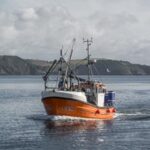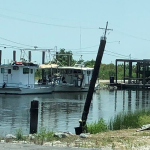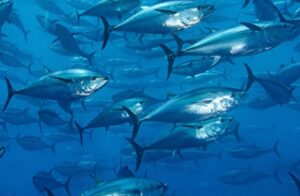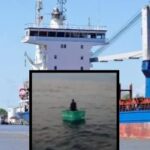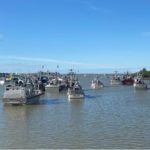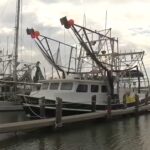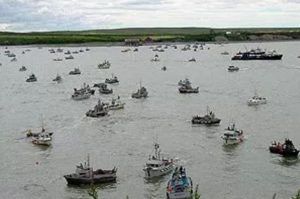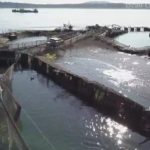Daily Archives: February 18, 2020
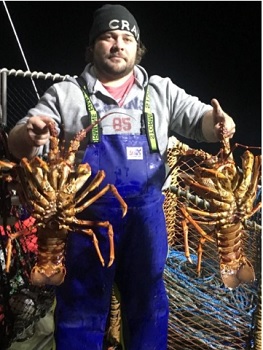
Lobster fisherman hopes to survive impact of coronavirus, rising costs
In Tasmania’s north-west, fisherman Scott Inkson is one of the lucky ones who may survive the impact of the coronavirus on the lobster industry. As COVID-19, as it is now known, continues to prevent live fish exports to China — his main market — he has decided to set up shop off his boat in Wynyard and give the community a cheap treat., “After 90 minutes on the wharf we completely sold out., King Island fisherman Mark Smith, 28, has struggled to sell his lobsters this season. >click to read< 23:15
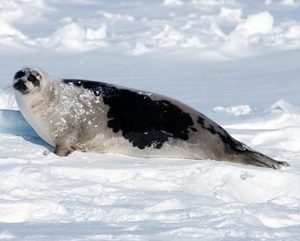
Access To Information docs from DFO shine light on collapse of Atlantic Harp seal harvest
As first reported by Blacklock’s Reporter, the harp seal harvest last year was halved from 2016 despite subsidies paid to processors to promote seal meat recipes. A total 30,435 harp seals were hunted last year, a fraction of the 217,850 taken annually prior to a European Union ban on Canadian seal exports. Legislators have blamed the 2009 E.U. ban on exports of Atlantic pelts, oil and other Atlantic seal products for the death of the industry.,, The Commons fisheries committee in a 2017 report Newfoundland & Labrador’s Northern Cod Fishery said Canada should promote a larger seal hunt, >click to read< 22:30
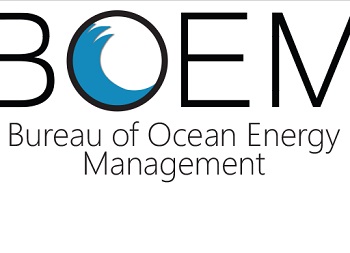
A fowl wind blows offshore
With the increased science available, showing a variety of impacts, The BOEM (Bureau Of Ocean Energy Management) Lease schedule through 2024 within the Department of Interior should be reevaluated. Since there is no official BOEM Atlantic, director, or administrator that has ever been permanently appointed, the request for a Atlantic review has not been initiated. A reliance on the bidders financial review of the lease sites is how BOEM is determining the viability for development. ( A buyer beware mentality ). This policy is a mistake and is costing the taxpayers millions. Brick Wenzel >click to read< 21:17
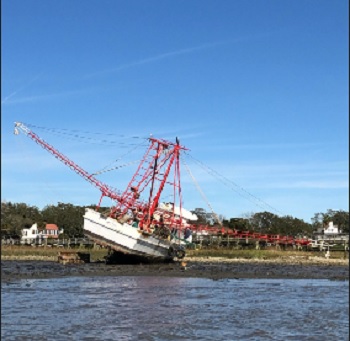
F/V Jamie Lynn stuck ashore due to tides, strong winds, and a needed plan to release her
Feb. 6 when high-speed winds howled through the Lowcountry, a shrimp trawler was pushed into the mud. It remains there until a plan can be made to release it. The Jamie Lynn was anchored on the Mount Pleasant side of Crab Bank and blew onto the bank of the Old Village, just southeast of the mouth of Shem Creek between two privately-owned docks. The boat was purchased by captain Wayne Pye and his fiancé, Jamie Lynn Kennedy,,, According to Kennedy, that’s right about the same time that the shrimp stopped showing up. photos, >click to read< 16:20
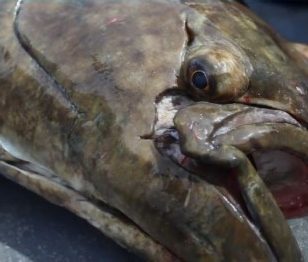
Central Gulf of Alaska halibut catch limit cut
Halibut catch limits for 2020 have been trimmed overall by seven percent by the International Pacific Halibut Commission, with the Central Gulf of Alaska, Area 3A, allocated a harvest of 7.05 million pounds, down 12.53 percent from 8.06 million pounds in 2019. The largest area percentage cut was for Area CDE, the Bering Sea, where the quota was cut 15.20 percent, from 2.04 million pounds to 1.73 million pounds. Area 4A, in the Aleutians, likewise received a 14.55 percent cut, from 1.65 million pounds in 2019 to 1.41 million pounds for 2020. >click to read< 12:03
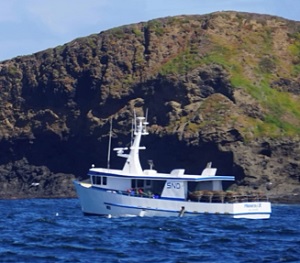
Matthew Morgan: A Change, and my presentation to the Tasmanian Legislative Council Inquiry into the Tasmanian Salmon (Finfish) industry
My name is Matthew Morgan, and I am Skipper of a Commercial Southern Rock Lobster Boat, F/V Monica is 57 feet long X 20 feet Beam x8 feet Draught. Her and I are in the Top 10% of this Fishery in Tasmania Originally my group on facebook was called Wild Fishers Against Salmon (Finfish) Farming. We were asked to change that from Against, to FOR Sustainable by a former government advisor that the former name Wild Fishers Against, would make it unlikely we would gain our access to the Minister. We Complied. >click to read< 10:19

Senate Commission Wants Answers Regarding Exposed Block Island Wind Farm Cables
The Coastal Resources Management Council (CRMC) said its geologist recommended before construction of the offshore wind facility that Deepwater Wind, now owned by Denmark-based Ørsted, bury the two cables 6-8 feet deep using a process known as horizontal directional drilling. Deepwater Wind, however, relied on an independent engineering report that concluded the 12-inch-diameter cable could be buried at a depth of 2-4 feet using a devise called a jet plow. According to CRMC executive director Grover Fugate, CRMC’s governing board relied on the independent report to approve the more shallow depth using the jet plow process. >click to read< 09:14
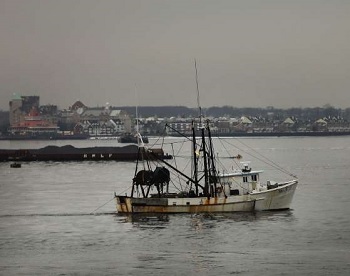
Climate Change Is Sending This Fluke Fight to Court
Disputes over fish quotas are not new, and the $25.2 million East Coast market for fluke—although a reliable bread-and-butter fish—is not particularly lucrative. And New York has sued to alter the quota before. But this lawsuit is being watched closely because it introduces a new factor into the decades-old quota system: the impact of climate change. Quickly warming waters have reshaped the entire fishing industry on the East Coast, moving the fluke dramatically to the north. The lawsuit argues that now 80% of all fluke catches occur within 150 miles of Long Island and that state allocations need to be updated to reflect the fishes’ evolving location. >click to read< 08:17
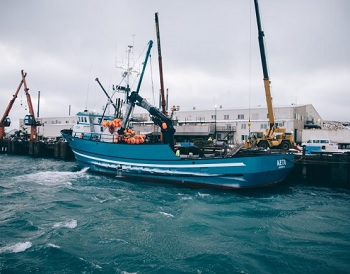
Life on an Alaska Crab Boat
I grabbed the rails and prepared to vomit. My half-digested bowl of Honey Bunches of Oats would soon be fish food.,,, With a mix of curiosity and stupidity, I said yes to a week on the F/V Silver Spray, one of just 60 boats that harvest crab in the Bering Sea in the dead of winter. Preparing for the worst, I packed a backpack full of warm layers and wool socks, and emptied the local pharmacy of seasickness medications. The weather report for the week ahead was best described as bleak to downright grim. photo’s, >click to read< 06:34

































